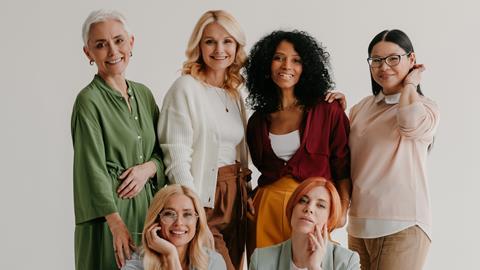Dr Belle Tindall is uneasy about a recent shift in conversations in political and social movement spheres
As you know well by now, I’m a woman who advocates for the political, social, economic and spiritual equality of the sexes. I’m undeniably and unashamedly for women – for them being and experiencing all that God intended and still intends. Professionally, this is the space I often sit in.
But, also, I am a woman. It’s my lived experience. This isn’t a purely professional topic for me; it’s as personal as it gets.
So, to sum up: both professionally and personally, I speak about being a woman a lot, right? I have done for quite some time now – in all kinds of rooms with all kinds of people, holding all kinds of views. And, when it comes to those conversations, I feel a shift happening. I’m noticing it everywhere, and maybe you are, too.
Changing from ugly…to different ugly
For many years, women would talk about the things that make it hard to be a woman – aspects of society that feel unsafe, unfair or unjust. And, to put it bluntly, nobody would listen. We could scream at the top of our lungs, and often be met with an eye roll. We could talk about the gender pay gap, and be told it doesn’t exist. We could vocally worry about the effect that Andrew Tate is having, and be accused of overreacting. We could, and do, have endless conversations about the complexities and nuances of sexual safety and…nothing.
Period tax, women in sport, lack of medical research.
Nothing, nothing and yet more nothing.
I’m generalising here, obviously. But that’s been the general trend – a common lack of interest from those who are not directly affected by, or perhaps just don’t agree with, the struggles that women vocalise. The good news is that this appears to be changing. The bad news is that it’s changing into something that’s equally as ugly.
Now, women are being heard: their fears are being noted and then, arguably, weaponised. I can’t help but notice that the issue of women’s safety (something that we have been speaking about endlessly, to not much avail) seems to have shot to the top of many people’s agenda.
Earlier this year, Conservative MP, Robert Jenrick, wrote an article in which he stated that he fears for his daughters’ safety, not wanting them to live near “men from backward countries who broke into Britain illegally and about whom you know next to nothing”. Political party, Reform UK, tends to have women’s safety at the forefront of its campaigns; again, noting that it is the migrant and transgender communities that pose the looming threat. Women’s safety was also central to this summer’s ‘Unite The Kingdom’ march, organised by far-right activist, Tommy Robinson. A march from which there is footage of men chasing female counter protesters down the street.
De-humanisation can never be a tool in our societal toolbox
I recently listened to an episode of ‘The Sacred’ podcast, hosted by the ever-tender Elizabeth Oldfield. This particular episode was a live conversation between her and author and political commentator, Rod Dreher, around the topic of immigration. Despite it being one of the most humanising and respectful debates I’ve heard on this topic, I couldn’t help but wince every time Rod Dreher brought up the topic of women’s safety. Again and again, he mentioned that women felt, and indeed were, unsafe around migrants. I found myself getting more and more irritated by this, until Elizabeth seemed to read my mind and told Rod that if ever there is a man following her late at night, it doesn’t matter what colour his skin is, nor what language he speaks, she has learned to be scared.
Refusing to get sucked in
So, while women’s safety and rights seem to be at the forefront of political and social movements right now, I can’t help but be deeply suspicious of the intentions behind it. It seems to me that the same people who have spent the last five or so years responding to women’s pleas for help with an irritated “not all men” chant, are now more than happy to point at a marginalised group of people and declare “but probably all those men”.
A common enemy is a powerful thing, right? A uniting thing? An energising thing, even?
The thing is, as Christians, I’m just not sure we get to join in with this. I don’t think the Bible gives us the option of pitting one marginalised group against another; de-humanisation can never be a tool in our societal toolbox. In fact, if we’re going to get biblical about it, this is what it says about vulnerable women and foreigners:
“He defends the cause of the fatherless and the widow, and loves the foreigner residing among you, giving them food and clothing” (Deuteronomy 10:18) and “Do not oppress the widow or the fatherless, the foreigner or the poor. Do not plot evil against each other” (Zechariah 7:9-10).
So, this isn’t purely political, it’s theological.
This is where, as a Christian feminist, I have to implore us all to refuse to do the easy thing – to refuse to hate, even if it is being done under that banner of ‘women’s safety’.


































No comments yet